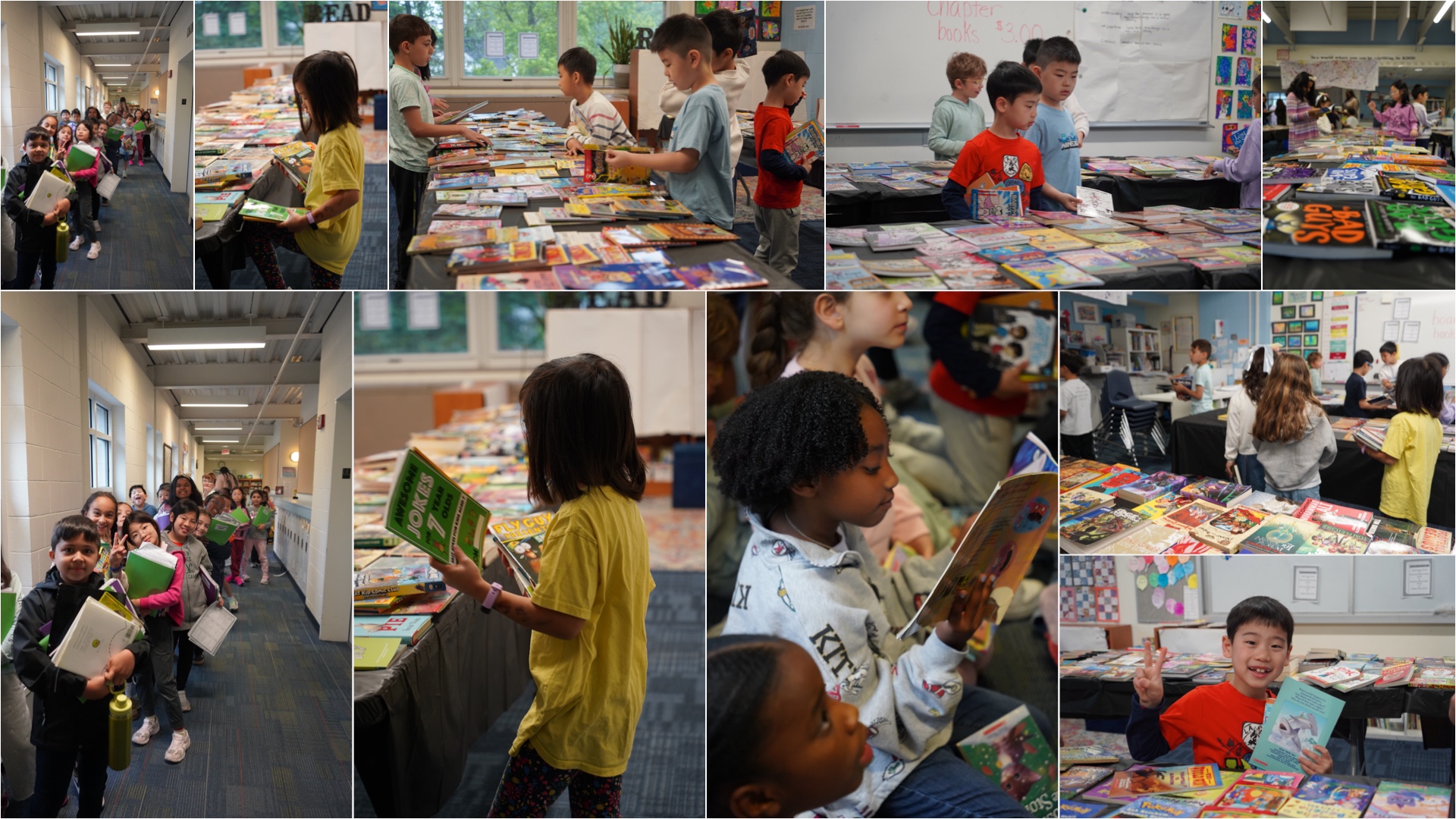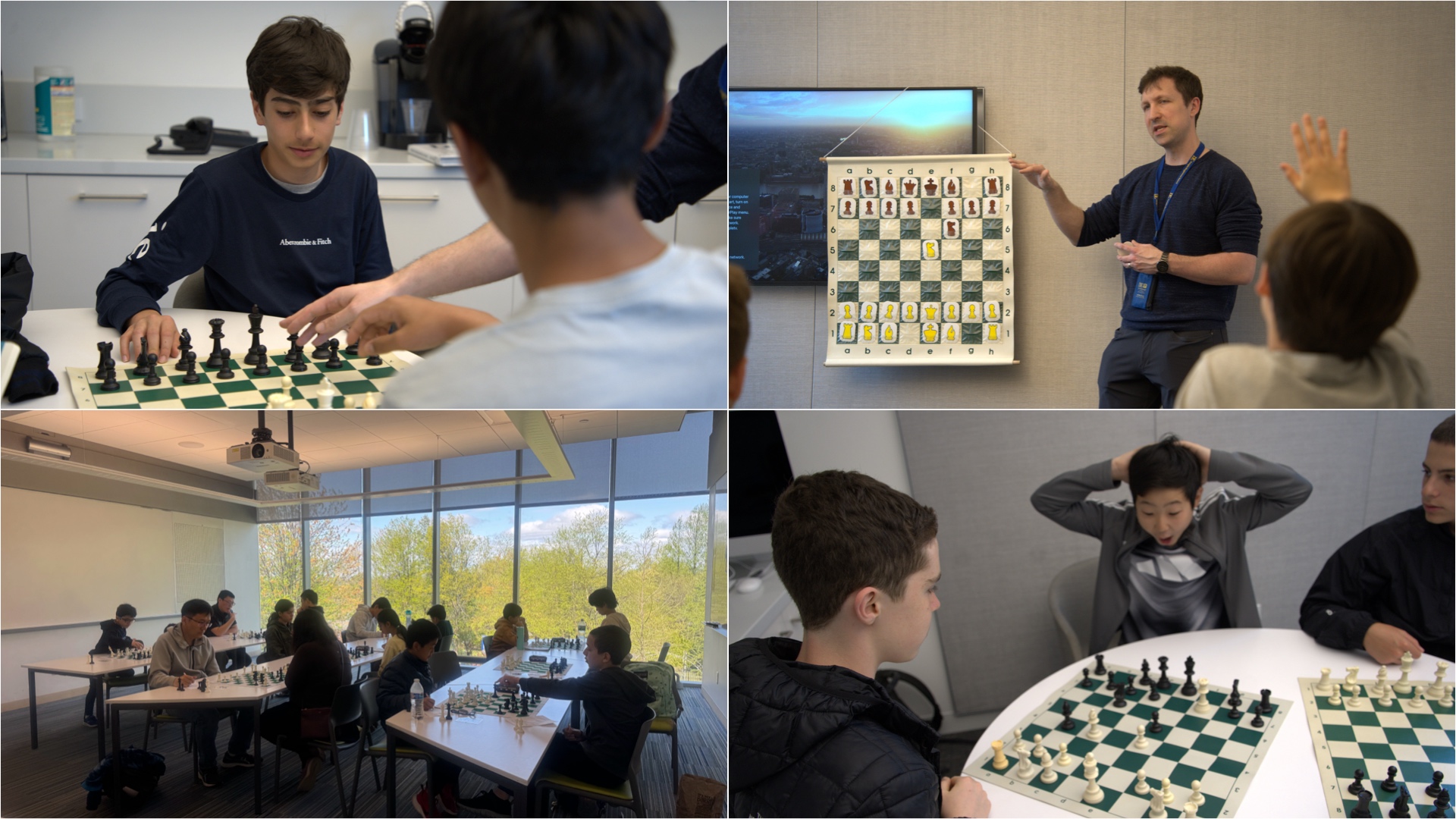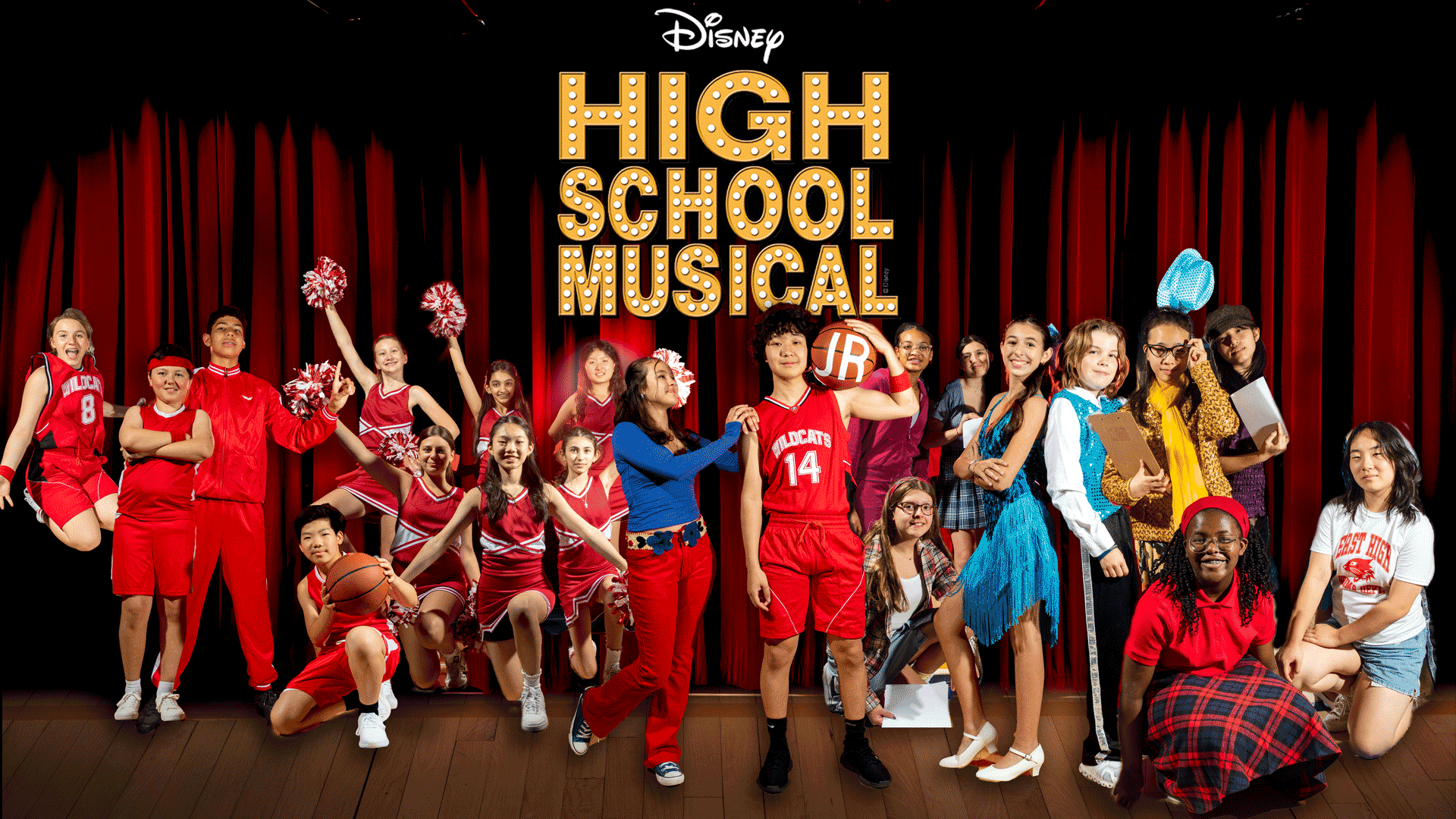The inaugural TEDxDwight-Englewood School event, held on April 3, 2025, in Hajjar Auditorium, is in the books! Chief Innovation Officer Diana Gross gave opening remarks, along with student leaders and event co-facilitators Soham Bafana ’25 and Georgia Unger ’25, ahead of thoughtful presentations on a range of topics.
“Our first TEDx event was a powerful reminder of the importance of giving students a platform to share their voices,” said Ms. Gross. “Their talks were inspiring, showcasing incredible talent and a deep commitment to our mission—applying skills, values, and courage to tackle real-world challenges and make a meaningful difference. They aren’t waiting to change the world—they’re already doing it!”
Gabriel Rhodes ’26 opened the talks with a slide show on how to become an agent of change. He used his personal cause—climate action in the Pacific—to inspire others to make an impact in other people’s lives. “I believe that the true measure of a society is how well it treats its most vulnerable members,” said Gabriel, who started his own organization called Diplomacy Decoded, for which he’s had conversations with a number of United Nations ambassadors and diplomats.
Ananya Kannan ’26 focused her talk on mathematics. “By 7th grade, I could graph a line and multiply negative numbers, and I knew decidedly that I was a math kid,” Ananya declared. But she soon realized she couldn’t just use memorization to solve challenging problems. Ananya summarized her presentation by stating that there is more to math than memorization and underscoring the premise that “math gives us the problem-solving and perseverance skills to tackle the unknown.”
In his talk, Lucas Brown ’25 expressed that making comparisons to one another’s path to success can be unhelpful or generally harmful. He presented anecdotes on why early specialization is not the only way to accomplish great things. “The reality is… head starts are overrated,” Lucas noted. “I challenge you all to explore, not by digging deeper into one topic, but by widening your view of the world. And if you feel behind, good—because you might get ahead later.”
The talk by Jared Mosseri ’27 delved into why Artificial Intelligence and the Metaverse (virtual and augmented reality technologies) should be integrated into educational environments, where they can supplement traditional learning. “There’s an old proverb: “Tell me, and I forget. Teach me, and I remember. Involve me, and I learn,” Jared shared. “The Metaverse is all about involving the learner.”
Through a series of family photos and personal reflections, Michael Lihanda ’28, spoke on the fragile meaning of permanence. “What if trying to make things last is what makes them disappear?” he questioned. “The more we try to freeze time, the more we distance ourselves from the experience itself.” He concluded that “the value of something isn’t how long it lasts; it’s in how much it means while it does.”
Pianist Steven Cui ’25 closed the event with a discussion on how to break cultural barriers around classical music and the arts and create connections. He shared: “In an age… forcing us to consider what art actually means, sometimes it’s worth [asking] why do people pay tickets to go see these things in the first place? Why do people turn to music in their times of desperation? Why do people turn to film? It may be… that breath from a human being is what ultimately makes a difference.”





